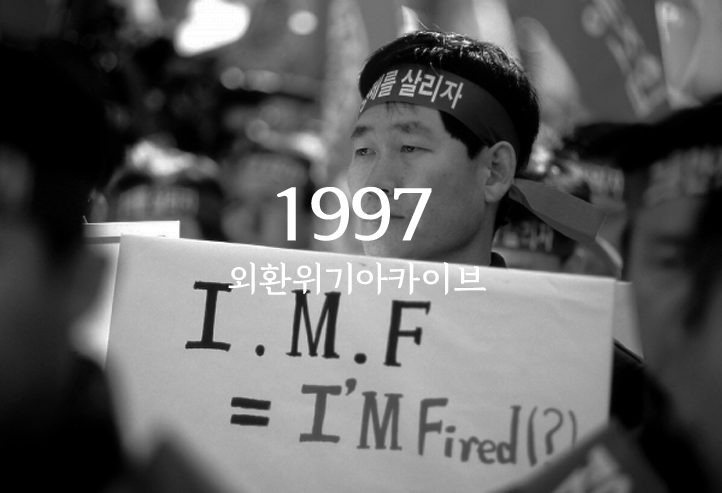소장기록

제목USA: I-M-F NOT RESPONSIBLE FOR ASIA'S 1997 FINANCIAL CRISIS
설명U-S Treasury Secretary Lawrence Summers says he doesn't hold the I-M-F responsible for the financial crisis which swept south east Asia two years ago worse. But he did admit the organisation had made mistakes. Summers, who has just returned from a tour of the region also says he's optimistic about south east Asia's economic prospects. It's a debate that still continues, did the international community make the right choices in responding to the Asian financial crisis? The International Monetary Fund (I-M-F) has acknowledged that it made some mistakes in its rescues of Thailand, South Korea and Indonesia in 1997 and 1998, most notably in underestimating the severity of those countries' recessions. But the I-M-F has largely dismissed criticism that it made the crisis worse by insisting the countries' governments adopt painful economic policies such as high interest rates. That criticism was aired again today at a hearing on the lessons learned when the international community jumped in to rescue Asian economies. The U-S Treasury Secretary, who has just returned from the region, says the I-M-F did need to improve its performance. SOUNDBITE: (English) "We have made progress in the effort to develop a 21st century IMF. But we have no doubt that further change is needed. We said many times last year that a well-funded IMF was indispensable to a stable global financial system. But as we also said at that time - that does not mean we can be satisfied with the IMF as it is." SUPER CAPTION: Lawrence Summers, U.S. Treasury Secretary But Summers said he did not believe the I-M-F had made the problems of the Asian economies worse. SOUNDBITE: (English) "By far the greatest responsibility for causing, and responding effectively, to crises lies with countries themselves. The fact that most countries with IMF programmes in place have severe economic problems does not imply that the IMF is responsible for those problems - any more than the fact that most people in a hospital are severely ill would be evidence of medical malpractice." SUPER CAPTION: Lawrence Summers, U.S. Treasury Secretary And he was optimistic about economic trends in the region. SOUNDBITE: (English) "I think it would be fair to say if you look at Asian economies as a group, their situation today is substantially better than the vast majority of observers expected a year ago." SUPER CAPTION: Lawrence Summers, U.S. Treasury Secretary In the past, Summers' predecessor, Robert Rubin has said the Asian crisis illustrated the risks and opportunities of a global economy. It seems Summers agrees. You can license this story through AP Archive: http://www.aparchive.com/metadata/you... Find out more about AP Archive: http://www.aparchive.com/HowWeWork
생산자AP Archive
날짜1999-11-05
기록유형동영상
기록형태영상클립
주제IMF협상
연관링크https://youtu.be/Q2OQcMzpRyY
식별번호KC-R-05373
제목USA: I-M-F NOT RESPONSIBLE FOR ASIA'S 1997 FINANCIAL CRISIS
설명U-S Treasury Secretary Lawrence Summers says he doesn't hold the I-M-F responsible for the financial crisis which swept south east Asia two years ago worse. But he did admit the organisation had made mistakes. Summers, who has just returned from a tour of the region also says he's optimistic about south east Asia's economic prospects. It's a debate that still continues, did the international community make the right choices in responding to the Asian financial crisis? The International Monetary Fund (I-M-F) has acknowledged that it made some mistakes in its rescues of Thailand, South Korea and Indonesia in 1997 and 1998, most notably in underestimating the severity of those countries' recessions. But the I-M-F has largely dismissed criticism that it made the crisis worse by insisting the countries' governments adopt painful economic policies such as high interest rates. That criticism was aired again today at a hearing on the lessons learned when the international community jumped in to rescue Asian economies. The U-S Treasury Secretary, who has just returned from the region, says the I-M-F did need to improve its performance. SOUNDBITE: (English) "We have made progress in the effort to develop a 21st century IMF. But we have no doubt that further change is needed. We said many times last year that a well-funded IMF was indispensable to a stable global financial system. But as we also said at that time - that does not mean we can be satisfied with the IMF as it is." SUPER CAPTION: Lawrence Summers, U.S. Treasury Secretary But Summers said he did not believe the I-M-F had made the problems of the Asian economies worse. SOUNDBITE: (English) "By far the greatest responsibility for causing, and responding effectively, to crises lies with countries themselves. The fact that most countries with IMF programmes in place have severe economic problems does not imply that the IMF is responsible for those problems - any more than the fact that most people in a hospital are severely ill would be evidence of medical malpractice." SUPER CAPTION: Lawrence Summers, U.S. Treasury Secretary And he was optimistic about economic trends in the region. SOUNDBITE: (English) "I think it would be fair to say if you look at Asian economies as a group, their situation today is substantially better than the vast majority of observers expected a year ago." SUPER CAPTION: Lawrence Summers, U.S. Treasury Secretary In the past, Summers' predecessor, Robert Rubin has said the Asian crisis illustrated the risks and opportunities of a global economy. It seems Summers agrees. You can license this story through AP Archive: http://www.aparchive.com/metadata/you... Find out more about AP Archive: http://www.aparchive.com/HowWeWork
생산자AP Archive
날짜1999-11-05
언어영어
출처youtube
연관링크https://youtu.be/Q2OQcMzpRyY
기록유형동영상
기록형태영상클립
대주제IMF협상
소주제IMF정책평가
자원유형기록